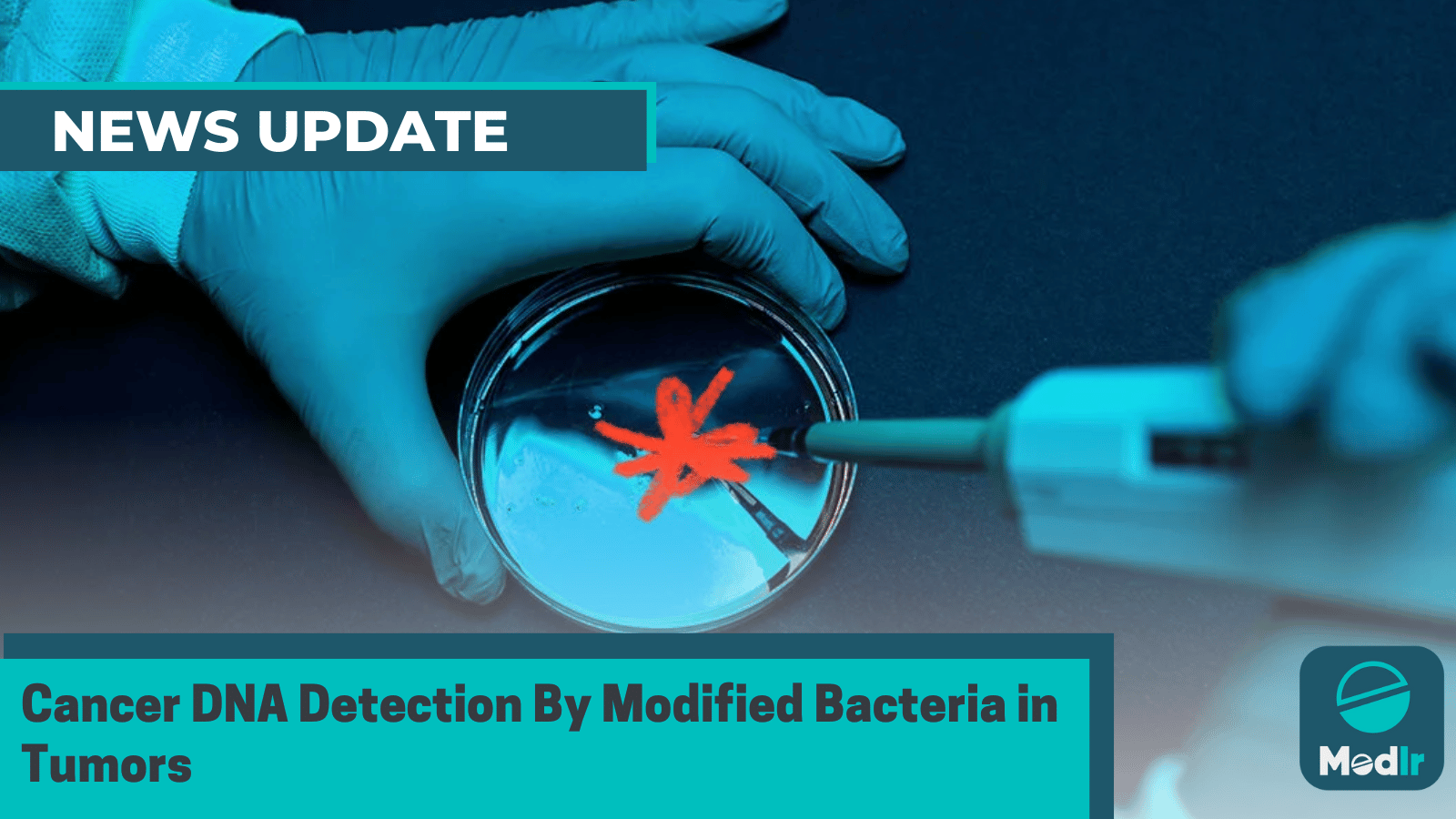Cancer DNA Detection By Modified Bacteria in Tumors
Written by Jaskiran Walia, Arushi Sharma
The frontier of cancer detection is being reshaped by the ingenious use of modified bacteria within tumor sites.

Researchers from the University of California, San Diego used CRISPR gene editing to create bacteria that detect mice colonic tumor DNA.
If this non-invasive diagnostic technique is used to humans, it might benefit in early cancer therapy. SCIENCE reported the findings.
Dr. Sudarsan Kollimuttathuillam, a medical oncologist and hematologist at City of Hope Huntington Beach and City of Hope Irvine Sand Canyon in California who was not involved in the study said -
“With colorectal cancer being the third leading cause Trusted Source of cancer death in women… and men, it is essential for research in this area to continue and to look at different ways we can detect cancer in its early stages or when lesions are precancerous.”
Kollimuttathuillam told Medical News Today -
“While the survival rate of colorectal cancer has been ascending steadily over the course of the last few decades, it is important to bring attention to the rising rates we are seeing in adults 50 years of age and under.”
“We know that polyps containing cancer cells can be lodged in the colon wall for years and detecting colorectal cancer early before it has spread and when is it more likely to be cured is essential.”
“Further research on these biosensors will be critical and we will know more of the potential impact once the efficacy and safety can be investigated through clinical trials,” he added.
How the tumor DNA bacteria was created
Using genetically modified bacteria to fight cancer may appear science fiction, but scientists use them as sensors in animals.
Dr. Nathan Goodyear, an oncologist and medical director at Brio Medical, a holistic, integrative cancer healing center in Scottsdale, Arizona said -
“The concept of a biological sensor, also called biosensor, is not new. The first biosensor was discovered and used by L.L. Clark 73 years ago, in 1950.”
“Instead of the static tools that dominate conventional diagnostics today, i.e., labs and imaging, biological sensors detect the reality of active biological metabolism,” he explained to Medical News Today. “Instead of detecting cancer itself, they detect the biological evidence of the cancer – even the most subtle evidence of cancer biological activity.”
Jeff Hasty, PhD, a study lead and a professor at the UC San Diego School of Biological Sciences and Jacobs School of Engineering, said in a press release -
“As we started on this project four years ago, we weren’t even sure if using bacteria as a sensor for mammalian DNA was even possible.”
The researchers concentrated on bacteria's ability to absorb foreign DNA. Acinetobacter baylyi was engineered to consume DNA from colorectal cancer tumors.
These bacteria would survive and show their existence in the presence of malignant cells, producing a positive signal. In the absence of cancer, the bacteria would die, resulting in a negative outcome.
Cancer DNA research is in its early stages.
Allan Gobbs, a managing partner at biotechnology venture firm ATEM Capital and a member of the National Cancer Institute's Review Committee, which is part of the National Institutes of Health (NIH), stated -
"This study stands out as a significant scientific advancement, poised to add to the suite of biological tools available to combat intractable diseases and potentially address major challenges such as climate change."
“However, the direct application of this technology for cancer diagnosis and treatment appears, for the moment, to be a distant prospect,” he told Medical News Today.
“Both academic and entrepreneurial communities are constantly unveiling innovative methods to detect oncogenes in the human body,” he added. “However, manipulating the human microbiome with precision remains an intricate challenge. Given the significant variability in the microflora composition among individuals and its dynamic response to interventions, developing a universal bacterial-based treatment strategy is daunting.”